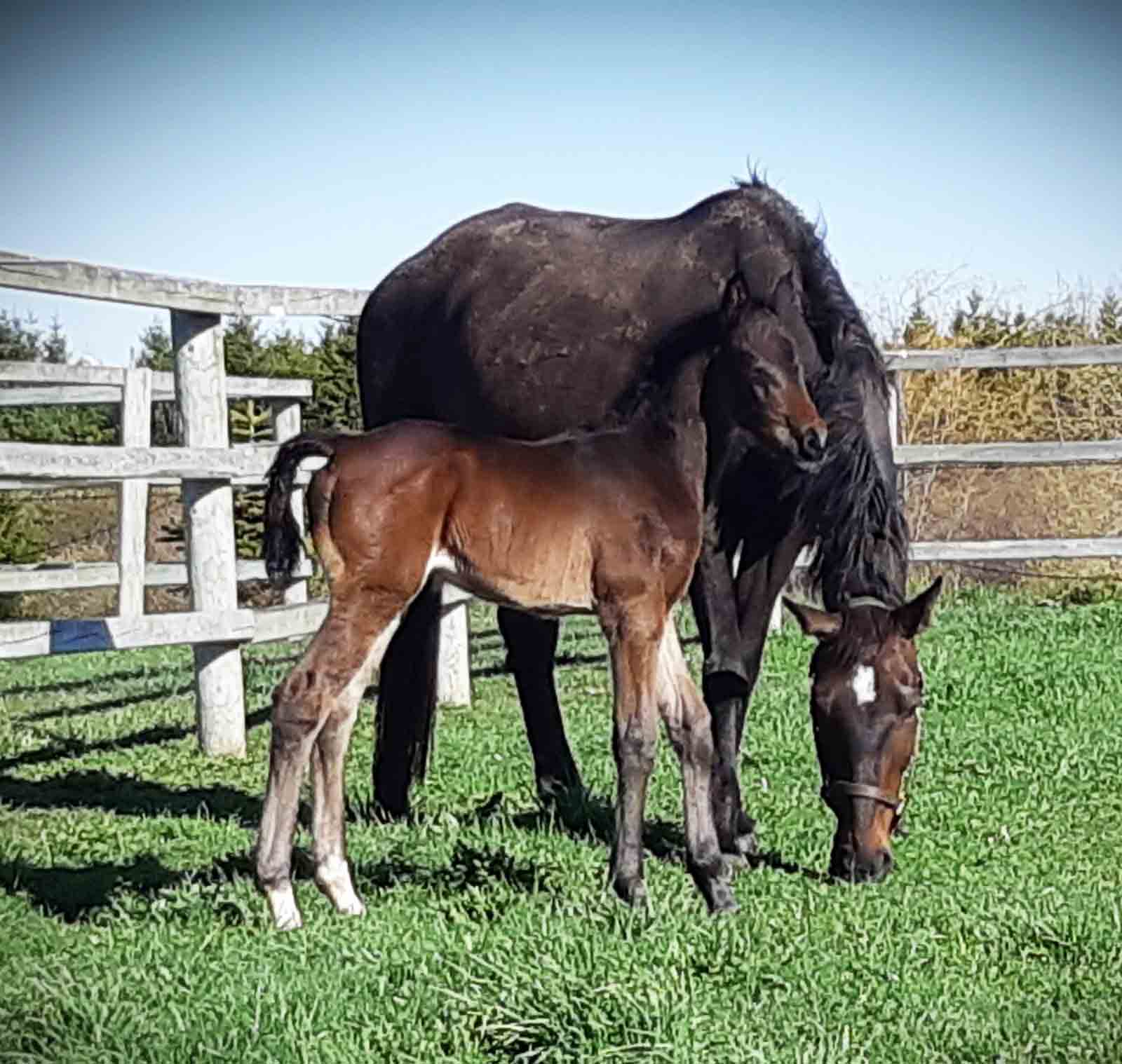GUELPH – The COVID-19 pandemic has had a devastating impact on innumerable businesses and organizations since mid-March – and horse breeders are certainly not immune to the fallout.
For some, those difficulties have been exacerbated by the hot weather this summer.
“These are unprecedented times,” said Dr. Tracey Chenier, associate professor of equine reproduction with the Ontario Veterinary College (OVC) at the University of Guelph.
The pandemic impacted each practice and breeding farm differently, but one common factor is there was “a lot of confusion at the start,” she explained.
“It really depended on … how they interpreted the rules,” Chenier told the Advertiser, noting both veterinarians and breeders likely had differing interpretations of what constituted “urgent” care.
For some it was business as usual, while others dealt solely with emergencies.

DR. TRACEY CHENIER
On-farm visits changed for most, Chenier explained, noting many vets no longer worked with an associate and many requested that owners stay out of barns during visits.
“I think it’s important for veterinarians to be able to do their work safely and not be exposed to the virus,” she said, noting some vets can visit up to a dozen farms per day.
The OVC still does not allow horse owners inside its clinic, Chenier added, in order to ensure everyone’s safety.
But that doesn’t affect care, she stressed, as communication remains open with owners, aided by texting and other technological advancements.
Heat stress
The hot weather this summer is likely impacting reproduction for some breeds, Chenier explained.
Horses are seasonal breeders, typically limited to the spring and summer.
When it comes to racing breeds, their season usually runs from February to early June, Chenier said, noting breeders can manipulate that window by introducing lighting early in the year to trick horses’ system into believing it is spring.
The idea, for thoroughbreds for example, is to get foals on the ground as close as possible to the universal birth date of Jan. 1, which ensures their development surpasses those born just a couple months later.
So, with a gestation period of about 11 months, generally hot weather should not have a significant impact on reproduction for racing breeds.
Warmbloods, on the other hand, breed into the fall, so breeding can be affected by heat stress, Chenier explained.
Guelph-based veterinarian Claire Plante, who has clients throughout Wellington County, said she has witnessed lower pregnancy rates in the field this year.
“It’s the first year I’ve seen so many irregular cycles,” she said.
“I’m sure it’s the heat.”
Chenier noted the effect of heat stress on equine reproduction “is something that’s not been well studied,” but she has observed fertility issues in horses with heat stress.
In dairy cows, studies have proven both the eggs prior to fertilization, as well as the early embryo (within the first week), are “particularly sensitive” to heat stress, said Chenier – and she suspects research would show a similar impact in the equine industry.
It also affects the temperature of sperm in the testes, so Chenier is confident both mares and stallions are susceptible to the heat when it comes to reproduction.
So what can owners do to counteract those effects?
Chenier said studies have shown items like cooling fans, mists and sprays do not work for dairy cows, so she suspects that is also the case for horses.
She suggests keeping horses in cooler barns during the day and turning them out in the evening when the temperature comes down.
Plante agreed, suggested early in the morning is also a good time to let horses outside.
She recommends also reducing stress as much as possible and keeping horses in top physical shape, as overweight horses are more susceptible to the heat.
‘A strange year’
Plante says she has never before, in her 30 years as a veterinarian, witnessed a greater impact on equine reproduction from heat stress.
“I’m seeing things I’ve never seen before,” she said.
Other than the impact of COVID-19 and this summer’s heat, Chenier said she is not aware of other factors that could impact equine reproduction this year.
She observed some cases of abortion due to viruses such as herpes this spring, but that’s nothing out of the ordinary, she explained.
Chenier said the OVC has seen a drop in the pregnancy rate of mares this year, but she stressed the university typically deals with horses that already have trouble getting pregnant.
“It’s been a strange year for us, but we haven’t seen (other) issues in the general population,” she said.




